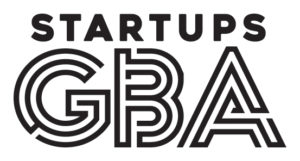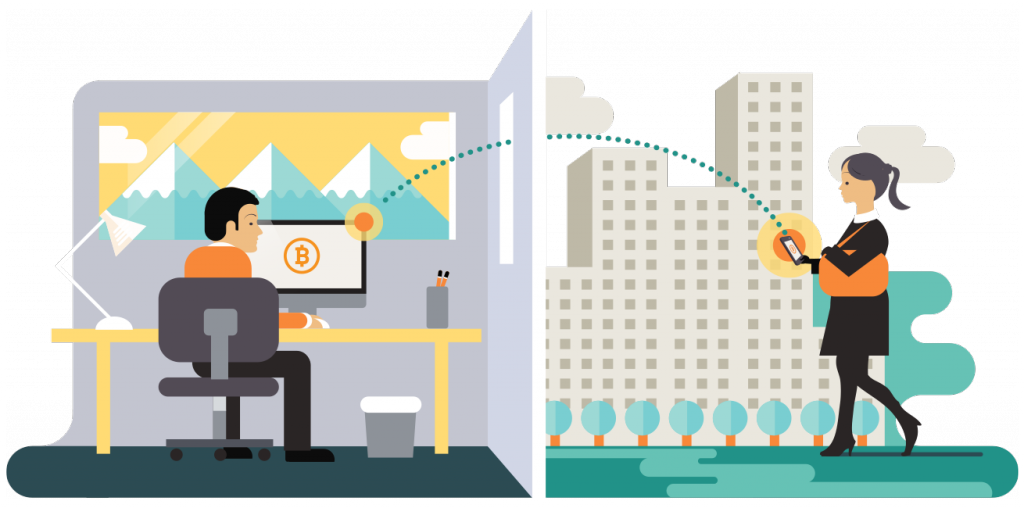
This is a guest post from George Harrap, the founder and CEO of Bitcoin startup Bitspark.
Bitcoin. You may have heard of it before in a number of different contexts but what is it all about? Let’s dive in and have a look at why this is causing such a buzz.
So what is Bitcoin anyway?
Bitcoin is a decentralised, peer-to-peer, digital currency. What this means is that nobody issues or controls it, payments between two parties are direct with no middleman and you can pay anyone, anywhere in the world instantly with no fees without relying on the legacy banking system. All transactions in the network are maintained in a shared ledger called the ‘blockchain’ where transactions are stored forever and cannot be reversed and this data is open and auditable at the click of a button. Bitcoin is traded 24/7 around the world where It’s value lies in its utility as an open currency, the network of users and the unique products and services the blockchain can provide. One Bitcoin is currently trading around $400 USD.
Why is that good?
At the moment we have to entrust our money to a third party like a bank who manages it for us. Whenever we need to send our money somewhere the bank charges a fee and it can take up to 5 business days to clear (not to mention exchange rate fees). Whenever we need to get a loan we need permission from the bank and they just tell us what the interest rate is. If we want to do anything other than withdraw money from an ATM (for a fee) we need to wait until Monday-Friday business hours when the bank is open.
With Bitcoin, you are your own bank. You can send money to anyone anywhere in the world 24/7 instantly with no fee and no middleman. You can crowdsource a loan in Bitcoin in minutes or invest globally from your smartphone. There are tens of thousands of shops and businesses around the world that accept bitcoin for payment of their goods and services and that number is growing exponentially with no conversion fees.
So it’s used for paying for stuff, anything else?
Yes! Bitcoin as a currency or a payment mechanism is just the beginning. Remember how I mentioned the ‘blockchain’, a shared ledger of all the transaction history – well, you can store a lot more than just transaction data. The blockchain can be used to prove ownership of something like the deeds to a house or a contract to paint the fence. Because the blockchain’s data is time-stamped and cannot be altered forever it is perfect for replacing unnecessary forms, signatures and paperwork. In September this year, a couple from Florida had their marriage enshrined in the blockchain proving that it’s not just transaction data that’s forever – but relationships too.
The blockchain can even enforce a contract by acting as an escrow agent. In the event of a dispute, the blockchain can be an arbitrator which fulfills one party’s claim if certain conditions are met. Those conditions, which were signed off by both parties in the original contract and in the code, (e.g. the original contract) could have a stipulation that if the contractor only paints 30% of the fence, I would only be obliged to pay him only 30%. Milestones are set in the code each 10% and digitally signed by both parties so the blockchain knows what’s been done in the real world.
We could even crowdsource decentralised justice from the network with real people acting as arbitrators incentivised by reputation feedback from clients and monetary reward. This could remove the need for many cases in a court of arbitration! Skynet here we come!
This sounds good but I heard Bitcoin was banned?
No it’s not. Hong Kong provides a Bitcoin-friendly regulatory environment as do most countries in Asia, and even on the mainland Bitcoin continues to grow. Having said that, the People’s Bank of China has made a few statements to cool the market and investment into Bitcoin, which in November 2013 – led to a rapid increase in price from $200 to $1200. The PBOC has made statements to the effect that they do want financial providers and institutions being involved in Bitcoin and general users should exercise caution when dealing with it. Users are still free to own and use Bitcoin as long as they are aware of the risks, just like any asset really.
What can Bitcoin do for me right now?
Ever bought something online? There are tens of thousands of worldwide merchants accepting Bitcoin for payment (why pay 2.5% fee on credit cards?) including many billion dollar companies like Dell and Expedia in the US. Here in Hong Kong, there are about 20 businesses selling their goods and services for Bitcoin including Flower delivery Hong Kong, Raja fashions tailors and Bit Point restaurant. There are also opportunities for investment in many financial products globally including: loans, equities, derivatives and much more.
Where do you think Bitcoin will be in 6 months or a year?
I think the value behind Bitcoin actually lies within the blockchain technology itself and the myriad of applications it can be used for. I think we will continue to see this ‘Bitcoin 2.0’ space grow with new innovations from entrepreneurs actually making apps usable for the everyday person who may have no prior knowledge, that’s where it’s at.
The rapid rise and growth of bitcoin heralds a new era of social inclusion in finance. Anyone, anywhere in the world has access to global commerce and it’s exciting to see what innovations will arrive next, it can come from anywhere!
George is the founder and CEO of Hong Kong based bitcoin startup Bitspark, a Bitcoin exchange, payment processor and remittance service. George has a background in Electronics Engineering and he is now focused on bringing finance to ‘the next billion’ through Bitcoin- the world’s first decentralised, peer to peer digital currency.
You can follow Bitspark @BitsparkBTC and visit their website here.


